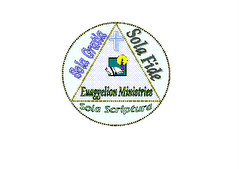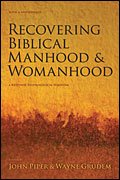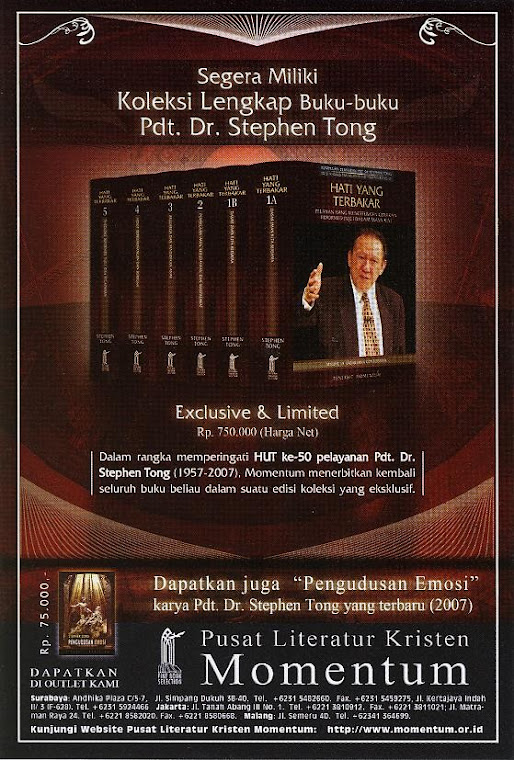01 February 2015
Book Description-305: "HOW TO READ THE BIBLE IN CHANGING TIMES: Understanding and Applying God's Word Today" (Prof. Mark L. Strauss, Ph.D.)
Most Christians read the Bible, but they do not know how to apply the Bible into their daily life. How can we as Christians understand and apply the Bible into our life today?
Get the answers in:
Book
HOW TO READ THE BIBLE IN CHANGING TIMES:
Understanding and Applying God’s Word Today
by: Prof. Mark L. Strauss, Ph.D.
Publisher: Baker Books, Grand Rapids, Michigan, 2011
In the introduction, Dr. Mark L. Strauss explains the core concept of Christian faith: the Holy Bible is the unchanging Word of God in a changing world, but many Christians understand this concept by applying the Bible literally without considering the biblical context. This wrong concept is explained by Dr. Strauss in chapter 2 by explaining that the Bible is not: a magic-answer book, a list of commands to obey, a collection of promises to claim, or a textbook of systematic theology. Then, in the third chapter, Dr. Strauss explains what the Bible is by explaining the natur of the Scripture: God’s Word delivered through human words. That concept is called by Dr. Strauss: the unity in diversity which means diversity is the Bible came to us through human authors in a variety of cultures, context, and literary forms (genres) and unity is the unifying message from beginning to end which unify all the diversity. Therefore, it leads to our task to exegesis to determine the author’s intended meaning. In this chapter, Dr. Strauss explains about the Bible as a God’s story from creation to new creation. After knowing what Bible is, in chapter 4, Dr. Strauss leads Christian readers to understand the heart-of-God hermeneutic which is the importance of reading and applying the Bible to identify God’s values, will, and purpose for the world and orient our lives in step with these. Therefore, it’s important for us to consider 4 questions to ask of any passage of Scripture: the relationship of the passage we read with the larger story of Scripture, the author’s purpose in light of the passage’s genre and historical and literary context, how this passage teaches us the nature of God and His purpose for the world, and teaching of attitudes, character, goals, and actions in this passage we read. A heart-of-God hermeneutic also includes how we can relate our hermeneutic with church tradition, community of believers, and the Holy Spirit. Those 3 things lead us to know what we should understand the passage we read, but they eliminate the importance of Biblical exegesis. The concept explained in chapter 4 and 5 are applied by Dr. Strauss in chapter 6 and 7 by explaining how we find the heart of God in Old and New Testament by knowing the genres in those testaments and relating each genre with 4 questions explained by Dr. Strauss in chapter 4. Then, how can we understand the Bible which has cultural aspects? In chapter 8, Dr. Strauss explains the wrong and right principles to apply the cultures in Bible to our culture. In this chapter, Dr. Strauss gives 3 examples of the true concept of applying the cultures in Bible to our culture: sabbath commmandment, homosexuality, and women in church leadership. In the last chapter, Dr. Strauss concludes all of his explanation and adds some point concerning when the Bible does not teach us about our modern problems, such as abortion, euthanasia, pornography, etc.
Endorsement:
“With a keen scholar's mind, a pastor's compassionate heart, and a teacher's clarity, Mark Strauss has penned a much-needed resource for understanding the Bible today. Your study of Scripture will be enriched and enhanced by this valuable book!”
Rev. Lee Strobel, D.D. (HC)
Editor The Case for Christ Study Bible and a teaching pastor in Saddleback Valley Community Church, Lake Forest, California, U.S.A. who receive Bachelor of Jurnalism (B.J.) from University of Missouri, U.S.A. and Master of Studies (M.S.) in law from Yale Law School, U.S.A. In 2007, he was awarded Doctor of Divinity (D.D.) degree from Southern Evangelical Seminary, U.S.A.
“The books on how to interpret the Bible are many. Some are so technical that their readership is severely limited; others are so popular that their accuracy and depth are sacrificed for easy rhetoric. Mark Strauss weaves his way between these two extremes to give us a book that is careful, understated, and filled with a great deal of good sense. No one will agree with everything he has written: the subject is too complex for that. But this is a good place to start.”
Rev. Prof. D. A. Carson, Ph.D.
Research Professor of New Testament in Trinity Evangelical Divinity School, Deerfield, Illinois, U.S.A. who received Bachelor of Science (B.S.) in Chemisty from McGill University; Master of Divinity (M.Div.) from Central Baptist Seminary in Toronto; and Doctor of Philosophy (Ph.D.) in New Testament from Cambridge University, U.K.
Biography of Dr. Mark L. Strauss:
Prof. Mark L. Strauss, B.A., M.Div., Th.M., Ph.D. is a professor of New Testament at Bethel Seminary. He has served on the New International Version (NIV) Committee for Bible Translation since 2005. He earned his Bachelor of Arts (B.A.) in Psychology from Westmont College; Master of Divinity (M.Div.) and Master of Theology (Th.M.) in New Testament from Talbot School of Theology; and Doctor of Philosophy (Ph.D.) in New Testament from University of Aberdeen. He is the author of several books, including Distorting Scripture? The Challenge of Bible Translation and Gender Accuracy and Four Portraits, One Jesus: An Introduction to Jesus and the Gospels. His professional associations include the Evangelical Theological Society, the Institute for Biblical Research, and the Society of Biblical Literature. He lives in California.
Subscribe to:
Comments (Atom)





